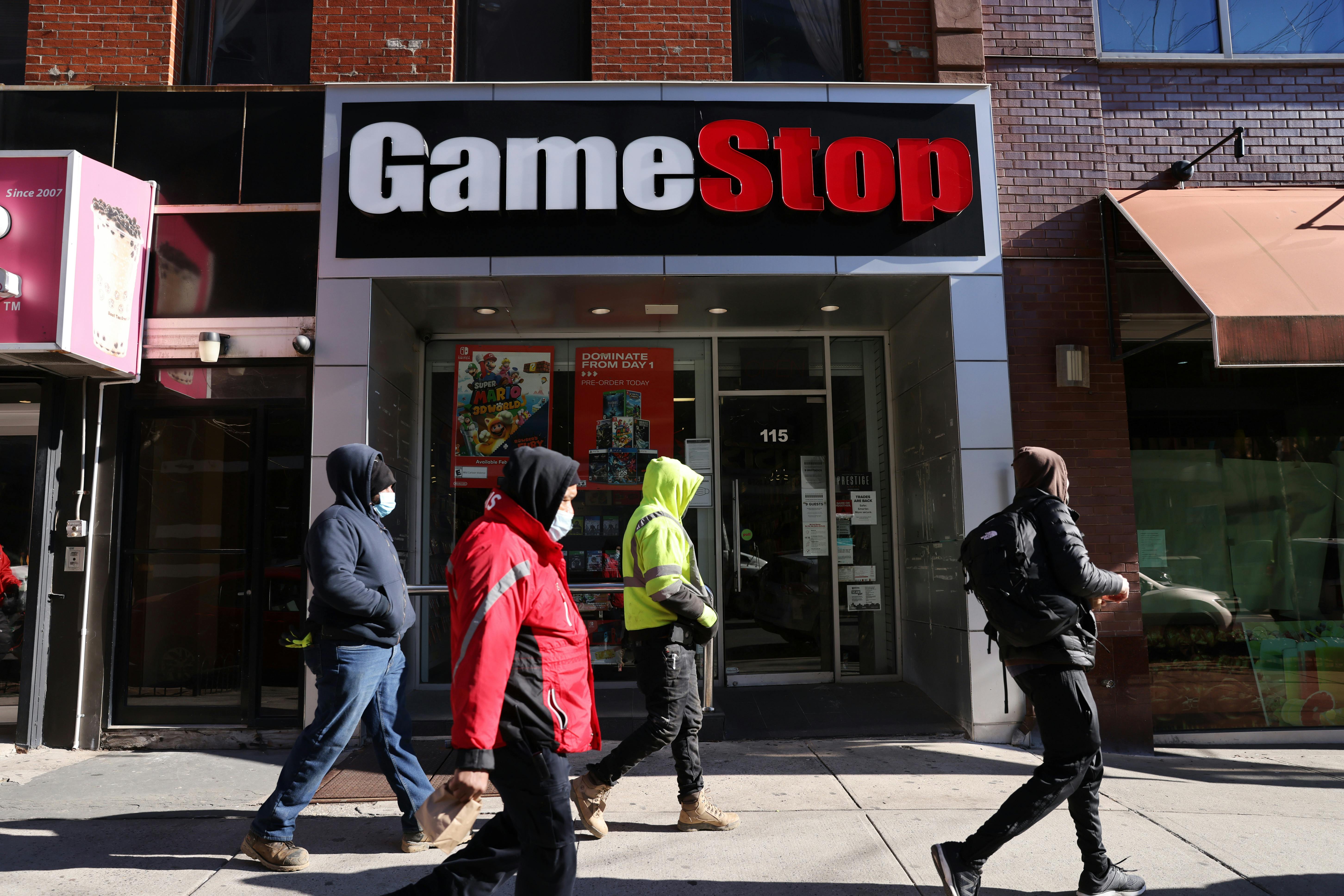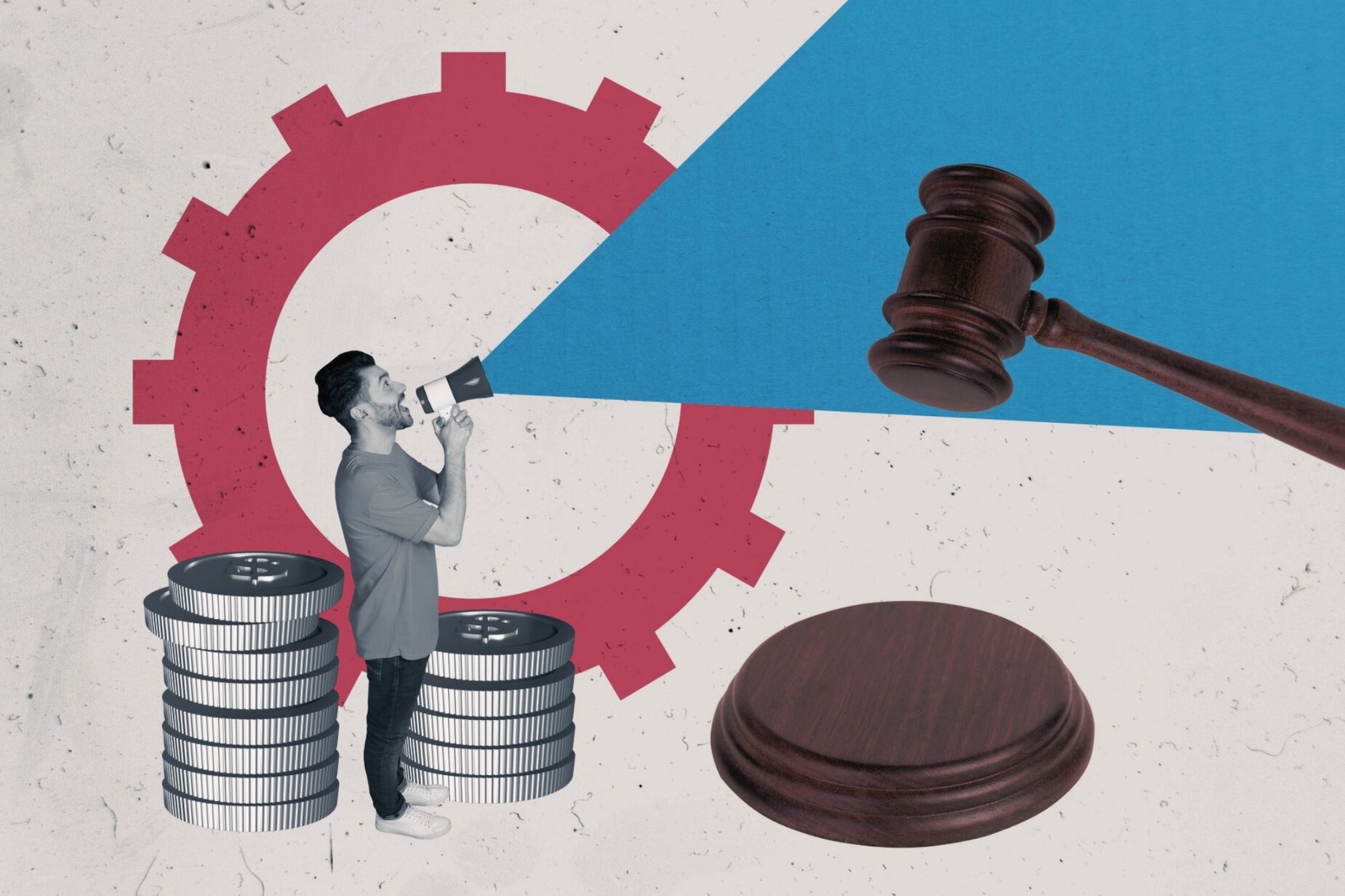The recent furor regarding speculation in the stock of GameStop—which soared far beyond its fundamental value, due to a technique known as a short squeeze—has focused attention on the nature of the stock market and what it means both politically and economically. CNN’s Chris Cillizza sees the bipartisan hostility toward hedge funds—so far, the big losers in the GameStop imbroglio—as a manifestation of Trumpian populism. But critics of market manipulation, such as Senator Elizabeth Warren, see it as another reason to ramp up government regulation.
So far, there is no data suggesting that one party or the other has benefited or suffered from gyrations in the stock of GameStop. Still, the issue raises questions about Republicans’ long-term strategy of encouraging broad-based stock ownership because they believe it tends to make people more conservative, politically.
The run-up in common stock prices in the late 1990s, fueled by the internet and a technology boom, was one of the great bull markets in history. It led some on the right to dream about finally achieving some long-held conservative goals: converting all shareholders into reliable Republican voters, broadening stock ownership to increase Republican votes, and partially privatizing Social Security. Just as Franklin D. Roosevelt had transformed a generation of workers into loyal Democrats by giving them a government pension, conservatives would convert a new generation of workers into loyal Republicans by giving them a government-funded 401(k).
The effort to convert workers into capitalists dates back at least to the 1950s, when a lawyer named Louis Kelso began promoting employee stock ownership plans, or ESOPs, to align the incentives of workers, owners, and managers. This would eliminate harmful strikes and the adversarial relationship between capital and labor that was acute in the postwar era. At a time when ideas such as syndicalism and industrial democracy—worker control of the means of production—were popular within the labor movement, ESOPs were a more capitalist approach to the problem of workers being alienated from capital.
Among those enamored with Kelso’s idea was Democratic Senator Russell Long, chairman of the powerful Senate Finance Committee and son of Huey Long, the populist Louisiana governor and senator whose Share-Our-Wealth plan in the 1930s was a major impetus for FDR to create Social Security. In the Revenue Act of 1978, Russell Long created the 401(k) plan and also a tax-favored ESOP. The 401(k) really took off in the 1980s; its success launched a long process of replacing traditional defined-benefit pensions with defined-contribution plans that require workers to invest for their own retirement.
In the 1980s, President Reagan saw employee stock ownership as a way to undermine communism and promote free markets. He established a task force chaired by conservative financier J. William Middendorf and ESOP expert Norman G. Kurland to study worker-controlled companies in developing countries. In announcing the report of this task force, Reagan said when workers have a stake in the place where they work, they have “a stake in the freedom of their country.” In the United States, he said, employee ownership is “a path that benefits a free people.”
By the 1990s, a considerable number of workers had 401(k)s and could see on a day-to-day basis exactly what the present value of their pension was. (Of course, defined-benefit pensions always had a capitalized value, but workers seldom had any idea what it was worth in contemporary dollars.) As the market went up, year after year, there is no doubt that the rising level of 401(k) plans was having a political effect. (The popularity of mutual funds also played a role in this shift by making it much easier for unsophisticated investors to buy a portfolio of stocks, including funds that invested in the stock market as a whole—a technique long advocated by economists.)
The first evidence I can find of an overt effort to use the bull market to convert workers into reliable Republican voters is from 1998. A February 24 article in the conservative Investor’s Business Daily newspaper cited data from Rasmussen Research, a Republican pollster, showing that among those making between $20,000 and $60,000 who had at least $5,000 invested in stocks, bonds, or mutual funds, 43 percent were Republicans and 34 percent were Democrats. Even more revealingly, among those in that income bracket who had no money invested, just 29 percent were Republicans and 45 percent were Democrats.
Republican pollster Frank Luntz argued that increasing stock ownership was good for the Republican Party. “Those who own stock tend to be more optimistic, tend to be more pro-democracy, tend to be more pro-free market and tend to have a more positive view of where the economy is headed,” he said in the same article.
Well-known Republican political operator Grover Norquist was quick to see the potential for politicizing stock ownership. He established the American Shareholders Association as an adjunct to his group Americans for Tax Reform, which is famous for getting Republicans to sign a pledge never to raise taxes for any reason. The executive director was a Republican activist named Richard Nadler, who wrote a manifesto on worker capitalism for the libertarian Cato Institute in 1999.
In an article in the December 4, 2000, issue of National Review, Nadler quoted Norquist explaining the process by which share ownership gradually altered political perceptions. Said Norquist:
When a wage worker enters the investor class through a work-based 401(k), his opinions on vouchers, free trade, and entitlement privatization are no likelier to change overnight than his party affiliation. But as his plan assets grow, so do his expectations for their performance. He may at first study nothing more than the plan materials his employer provides. But over time, he actively seeks sources of information that will maximize his efficiency in his new vocation: that of a capitalist. It is this pursuit that changes his opinions on a variety of partisan and policy questions to favor market-based solutions and their political advocates.
The election of George W. Bush moved the plan to convert workers into capitalists and, hence, into reliable Republican voters into high gear. The first step was a reduction in taxes on corporate dividends. This was sold as a tax break for the “little guy,” but of course the main beneficiaries were the ultrawealthy. Few people in the middle class owned stocks directly—and to the extent they owned them at all, they were mostly in retirement accounts that were tax-deferred. Stocks held by taxable entities in taxable accounts represent a small and continually declining share of stock ownership.
Richard Nixon’s political adviser turned populist Kevin Phillips said it was a joke that cutting taxes on dividends would help anyone except the ultrawealthy. “It’s not aimed at the little investor,’’ Phillips told The New York Times in 2003. ‘’It’s aimed at the big investor and shrouded by a fog of phoniness. This isn’t even trickle-down economics. It’s mist-down economics.”
Poll data published in The Washington Post on October 27, 2003, also called into question the political premise of the Bush plan. Although it was true that investors in the stock market tended to be Republicans, the data showed this trend in party affiliation was largely a function of income rather than stock ownership per se. As the Post article noted, “once a person’s income is taken into account, the political views of Americans whose only participation in the markets comes through contributions to a 401(k) retirement plan or an Individual Retirement Account (IRA) are not much different from those of non-investors.”
Nevertheless, Bush’s next economic project was partial privatization of Social Security, in effect allowing people to invest some of their payroll taxes in the stock market. Although he put enormous effort into this proposal, it never went anywhere. A rising stock market increased support for privatization, but dips in the market quickly reminded people of its risks and caused support for privatization to fall.
Since then, a number of academics have looked at the shareholder–political party membership correlation. They show that it’s hard to tell whether shareholding causes people to be Republicans or whether it’s the other way around—being a Republican makes people more likely to own stock.
- A 2007 study by the University of Michigan sociologists Gerald F. Davis and Natalie C. Cotton found that while shareholding increased GOP identification, “these effects … appear to be based on relatively narrow economic interests, as shareholders were not particularly [more] prone to favoring generic free market policies than were non-shareholders. They were, in short, primarily pocketbook voters, not ideological voters.”
- A 2008 study by Federal Reserve Bank of Dallas economists John V. Duca and Jason L. Saving found that broader ownership of mutual funds was a key factor in the rising share of Republican votes in House of Representatives elections since the 1980s.
- A 2012 article in the journal Accounting, Economics, and Law found while share ownership encouraged people to become Republicans through the 2004 election, it was largely because the market was rising. By 2008, a declining market created a backlash and GOP membership became more a matter of ideology than economic self-interest.
- The strongest evidence that stock ownership shifts people to the right, politically, comes from a new study by the Israeli political scientists Yotam Margalit and Moses Shayo. They performed a field experiment in which participants were given money to invest and their political attitudes were measured. “Results show that investments in stocks led to a more right-leaning outlook on issues such as merit and deservingness, personal responsibility, and equality,” the researchers found. “These results appear to be driven by growing familiarity with, and decreasing distrust of markets,” they concluded.
The Trump administration was obsessive about touting stock market gains as the indicator of the economy’s health, even as objective measures of the economy such as real gross domestic product growth and unemployment moved in the opposite direction. According to the Trump Twitter Archive, he extolled a rising market as proof of the success of his policies 154 times on Twitter during his administration.
In point of fact, there is no consistent relationship between changes in the stock market and movements in the real economy. As the Nobel Prize–winning economist Paul Samuelson once quipped, “The stock market has forecast nine of the last five recessions.” Nor does partisan control of the White House affect the economy as simplistically as Republicans believe. Many studies have shown that the economy actually does better when there is a Democratic president.
One lesson of the GameStop imbroglio is that those who live by the sword die by the sword. After soaring to almost $500 per share from $18 in early January, the price has fallen to just $90 since last week. One wonders how many of those touting the democratization of the stock market and the triumph of the little guy over the big shots got out before all their profits disappeared. Damned few, I’m guessing. In the space of a couple of days, they may have gone from apostles of the free market to wild-eyed socialists demanding billionaire blood.
















